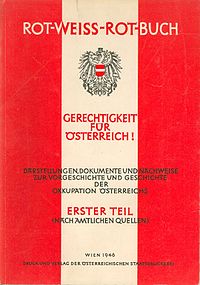Austria victim theory

So imagine you go to school and someone takes your toy away. You feel really upset and sad, right? Well, the victim theory is kind of like that, but on a much bigger scale.
In Austria's case, the victim theory suggests that the country was "taken away" from its people during World War II. This is because Austria was annexed, or forcibly taken over, by Nazi Germany in 1938. During the war, many Austrians were killed or taken away to concentration camps.
After the war ended, Austria was occupied by Allied forces and then eventually regained its independence in 1955. But the victim theory suggests that Austrians still feel like they were hurt and mistreated during the Nazi era, and that this has had a lasting impact on the country's identity.
So why is this theory important? Well, it helps us understand why some Austrians might feel a strong sense of national pride and a desire to distance themselves from anything that reminds them of the Nazi era. It also helps us understand why Austria has sometimes struggled to confront its wartime past and acknowledge the role that some Austrians played in supporting the Nazis.
Overall, the victim theory is a way of explaining how historical events can shape a country's identity and how people's experiences can have a lasting impact on their attitudes and beliefs.
In Austria's case, the victim theory suggests that the country was "taken away" from its people during World War II. This is because Austria was annexed, or forcibly taken over, by Nazi Germany in 1938. During the war, many Austrians were killed or taken away to concentration camps.
After the war ended, Austria was occupied by Allied forces and then eventually regained its independence in 1955. But the victim theory suggests that Austrians still feel like they were hurt and mistreated during the Nazi era, and that this has had a lasting impact on the country's identity.
So why is this theory important? Well, it helps us understand why some Austrians might feel a strong sense of national pride and a desire to distance themselves from anything that reminds them of the Nazi era. It also helps us understand why Austria has sometimes struggled to confront its wartime past and acknowledge the role that some Austrians played in supporting the Nazis.
Overall, the victim theory is a way of explaining how historical events can shape a country's identity and how people's experiences can have a lasting impact on their attitudes and beliefs.
Related topics others have asked about:
